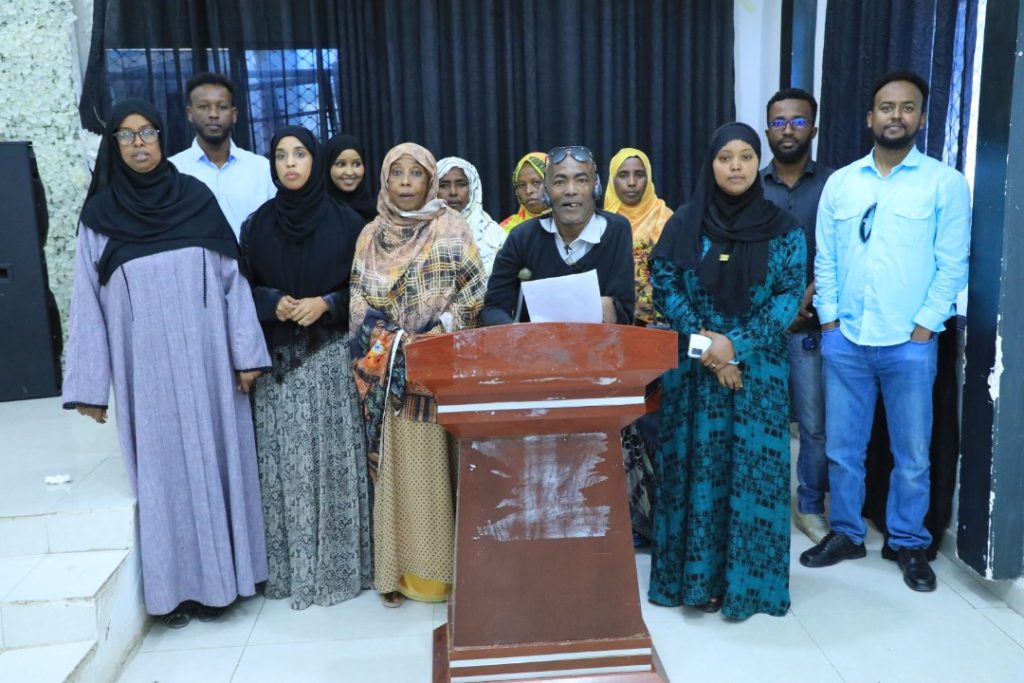
Women’s rights in Somaliland
People with disabilities, women, and minority groups are particularly marginalized in Somaliland due to attitudinal and environmental barriers, institutional challenges, and a lack of effective inclusion strategies and efforts. Individuals who face marginalization on multiple axes, such as, women with disabilities, women from minority groups, or women with disabilities who are also from minority groups, are at greater risk of frequent exposure to discrimination, verbal and physical abuse, and sexual violence.
Organizations supporting people with disabilities and other stakeholders have worked hard for the past 15 years to develop a national policy for people with disabilities in Somaliland, but there is currently no specific legal framework for addressing the needs and protecting the rights of people with disabilities.
Despite the Somaliland constitution’s article 8, which guarantees the equality of all citizens, women from minority groups have faced discrimination due to their ethnicity and gender and are particularly vulnerable to human rights abuses and injustices, including gender-based violence such as rape and sexual exploitation, poverty, illiteracy, and a lack of representation in decision-making institutions, among many others.
Clause 2 of Article 8 of the Somaliland constitution reads: “Precedence and discrimination on grounds of ethnicity, clan affiliation, birth and residence are prohibited; and at the same time programs aimed at eradicating long lasting bad practices shall be a national obligation.” However, the government has failed to enforce these provisions and develop strategies and programs to eliminate negative attitudes and norms toward women and minority groups, as the constitution requires.
Women with disabilities in Somaliland face multiple layers of discrimination, putting them at higher risk of facing sexual violence. Women with disabilities, particularly those suffering from mental illness, are subjected to severe abuse that often goes unreported and unpunished.
Rape and impregnation of women suffering from mental illness appears to be on the rise in Somaliland, however these crimes often go unreported. Amira – not her real name – is a homeless woman living with mental illness who has sustained three pregnancies as a result ofrape. She has never reported, and no perpetrator has been accused, her story only reached SIHA by accounts from local community members who see her in the market. She is not receiving any assistance or care to manage these pregnancies or to protect herself from repeated attacks.
Sexual violence affects not only the survivor, such as Amira, but also, her children, often rendering them stateless because the Somaliland constitution defines citizenship on the father’s citizenship and only when it is demonstrated that the father is stateless, can the mother’s citizenship be considered. When the father is unknown, even though the mother has Somaliland citizenship, the child will not be granted Somaliland citizenship.
Article 19 of the Somaliland Constitution states that “the State shall be responsible for the health, care, development, and education of the mother, the child, persons with physical disabilities who have no one to care for them, and persons with mental disabilities who are unable to care for themselves and have no one to care for them.”
Despite the fact that the constitution requires the government to provide them with welfare and that the government allocates funds for them each fiscal year, the government has failed to enforce these provisions, leaving women and people with disabilities to continue to be mistreated, neglected, and the targets of sexual violence.
In light of this, we, the coalition of women’s and girls’ rights organizations, organizations that support people with disabilities, WPS champions, minority rights advocates, and other stakeholders, call on the government to:
– Address the needs of women with disabilities, particularly those with mental illness, by providing immediate shelter, medical and mental health care.
– Develop robust inclusion and mainstreaming strategies for people with disabilities and minority groups.
– Implement the Sexual Offences Act passed in 2018 without amendment to end impunity for sexual violence against women and children.
– Monitor the funds allocated to people living with mental illness.
– Enact a disability act to protect the rights of people with disabilities.
